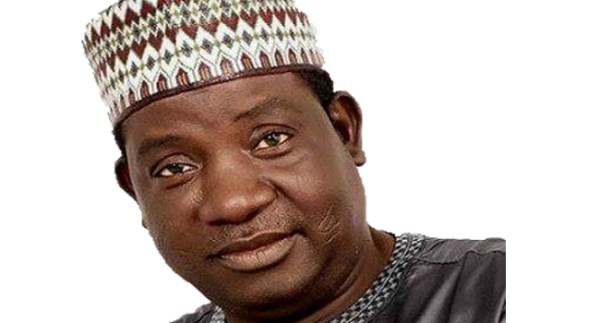The European Union (EU) and the Plateau State Government are jointly supporting the implementation of the Water Supply and Sanitation Sector Reform Programme III (WSSSRP III) in Plateau State to improve governance of the sector and provide improved services in urban and rural areas of the state.

The project is being executed by WaterAid Nigeria as a technical support project aimed at improving the capacity of civil society to advocate for better governance in the water and sanitation sector in particular and to act as a potential driver for good governance in the broader context of the public sector service delivery.
Direct community engagement aspects of the project will be implemented in small towns in Riyom and Shendam Local Government Areas while advocacy work will be aimed at state wide stakeholders in the water supply and sanitation (WSS) sector to improve the effectiveness and sustainability of the project outcomes.
The ultimate goal of the project is to ensure that as many of the more than 336,897 residents of Riyom and Shendam LGAs as possible receive improved water, sanitation and hygiene (WASH) services through the advocacy and engagement of CSO partners – Society for Water and Sanitation (NEWSAN), Community-Based Development Non-Governmental Organisations’ (CBD-NGO) Forum, WASH Media Network and Joint National Association of Persons with Disabilities (JONAPWD) – with the government and the EU.
Crucial to the sustainability of the legal institutional reforms and service delivery outcomes of the Programme is introducing accountability components that provide platforms for citizen groups and powerful non-state actors in Plateau State to continue demanding for better governance and participate in sector governance processes to ensure the interests of the people, including marginalised groups, are considered in all decision making.
This led to the development of the EU-funded project: Technical Assistance to Civil Society Organisations (CSOs) to implement WSSSRP III action (TAC).
The TAC project is working towards a Plateau State where CSOs have enough capacity to support all citizens, including women and people with disabilities, to demand their rights to clean water and safe sanitation, and also ensure that citizens are heard in decision making platforms within the sector. WaterAid will also support government institutions in the WSS sector to be better able to fulfil their duties as outlined in the state WSS policies.
WaterAid says that, along with partners, it is committing to ensuring that children, women, persons living with disabilities and the most vulnerable and marginalised communities will benefit most from the project.
“We will work with government and CSOs to ensure resources are targeted to those who are most at risk from a lack of access to clean water and sanitation,” the group declares, adding:
“We commend the Plateau State Government for its support and ownership of the project so far and call on state and its people to work with us and participate in project activities as we continue the journey to make and keep access to water, sanitation and hygiene a priority in the state and to achieving universal access (SDG 6) for everyone in the state.
“In Plateau State, as is the case across most of the country, access to water supply and sanitation services have been inadequate. About 61% of the state’s household population currently live without clean water, 29% without access to a decent toilet and 54.8% defecate in the open. Without sufficient access to clean water and sanitation, it will be difficult for the state to meet the development goals it has set for itself, such as reduction in maternal and infant mortality, eradication of water borne, and poor sanitation induced diseases – cholera, dysentery, Lassa Fever etc. – as well as improvement in school attendance and reduction in dropout rates, especially for girls. In addition, a loss in economic activities due to time spend fetching water, especially for women, will also continue to have an impact on the economic growth of the state.”
